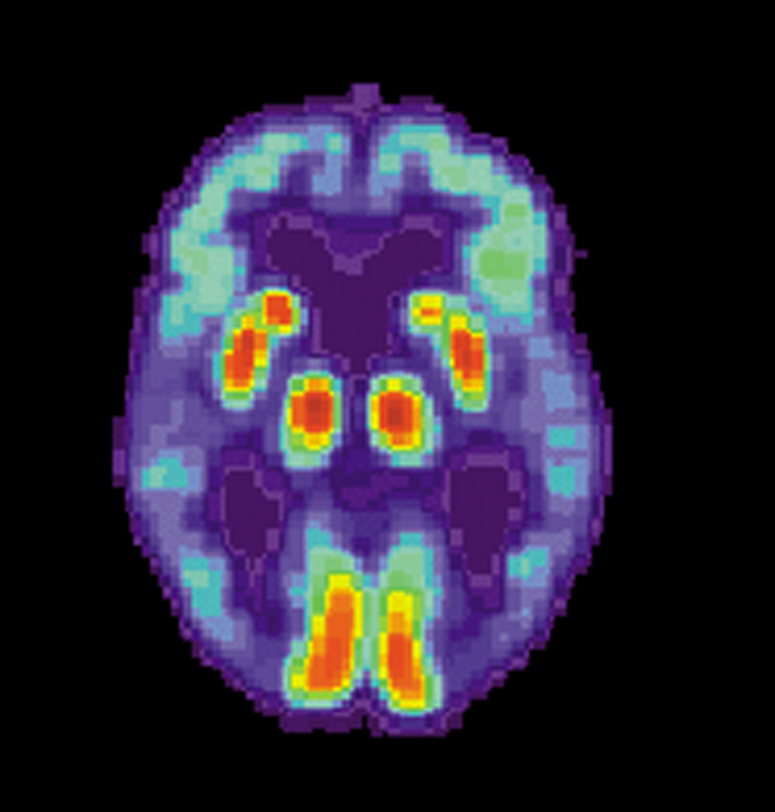The findings may promote treatments for diseases related to brain function

A study carried out at Tel Aviv University raises the hypothesis that an increase in the levels of the protein tomosin in the hippocampus may be related to degenerative diseases such as Alzheimer's. The findings may promote treatments for diseases related to brain function, such as Alzheimer's and Parkinson's.
The researchers, Prof. Uri Ashari and Dr. Boaz Barak, injected the protein tomosin into the brains of laboratory mice, and examined the effect of the injection on the operation of the hippocampus - an area of the brain that is severely affected by Alzheimer's disease and the like. Their findings may serve as a model for the development of innovative treatment methods for degenerative diseases of the brain, which impair learning and memory functions.
The research was carried out in the Department of Neurobiology at the Faculty of Life Sciences and the Segol School of Neuroscience of Tel Aviv University, in collaboration with the American Research Institute NIH, and was recently published in the scientific journal NeuroMolecular Medicine.
"The nerve cells in our brain communicate with each other by transferring molecules known as neurotransmitters, which cause chemical and electrical reactions," explains Dr. Boaz Barak, who carried out the research. "The neurotransmitters are transferred from cell to cell in small vesicles, and the transfer mechanism is carefully regulated by the nerve cells, to prevent over-transfer or, alternatively, lack of transfer. As mentioned, one of the proteins that help regulate the rate of transmission of neurotransmitters is Tomosyn, whose function is to delay the release of vesicles."
The researchers sought to examine the effect of tomosine on brain activity, and in particular on the activity of the hippocampus, that area of the brain responsible for memory, learning and navigation processes, in humans and other vertebrate animals. For this purpose, they injected into the hippocampus of adult mice a virus containing a gene for the production of tomosin. The injection caused an overexpression of the protein in the nerve cells, and the increased level of tomosin resulted in a decrease in the rate of transmission of neurotransmitters in the hippocampus.
Tomosin increases, function decreases
To test the mice's performance, the researchers gave them a cognitive-behavioral test: a task called the Morris Water Maze
(Morris water maze test), which tests the ability for spatial navigation. As part of the test, the mice were required to find their way to a platform hidden in a pool of water, according to various signs presented to them. Mice whose brains were injected with tomosin performed the task much less efficiently than the control group, evidence of a significant impairment in learning and memory abilities. Later, the researchers performed an autopsy on the brains of the mice, and conducted physiological measurements of the transmission of the neurotransmitters in the hippocampus areas that were affected by the tomosine. They discovered a decrease in activity, which corresponds to the inhibitory action of the protein, and provides a physiological explanation for the behavioral and cognitive phenomena observed earlier.
"The results of the study have many implications," says Prof. Uri Ashari, one of the leaders of the study. "In the research aspect, they help neuroscientists learn about the importance of the hippocampus for memory and learning processes, and shed light on the performance of behavioral tasks by mice. In the applied aspect, they help us to understand how brain function is damaged due to diseases or old age, and imply that an increase in the expression levels of the protein tomosin in the hippocampus may be related to degenerative diseases such as Alzheimer's. What's more: in the future, the findings may promote treatments for diseases related to brain function, such as Alzheimer's and Parkinson's. The technique we used to express a protein in a localized manner in the brain, may be used to manipulate specific points in the brain, to improve the condition of the patients. In addition, we continue our research: we locate additional molecules that change their activity in the brain during Alzheimer's disease, and examine the effects of injecting these molecules into the hippocampus on the development of the disease."
